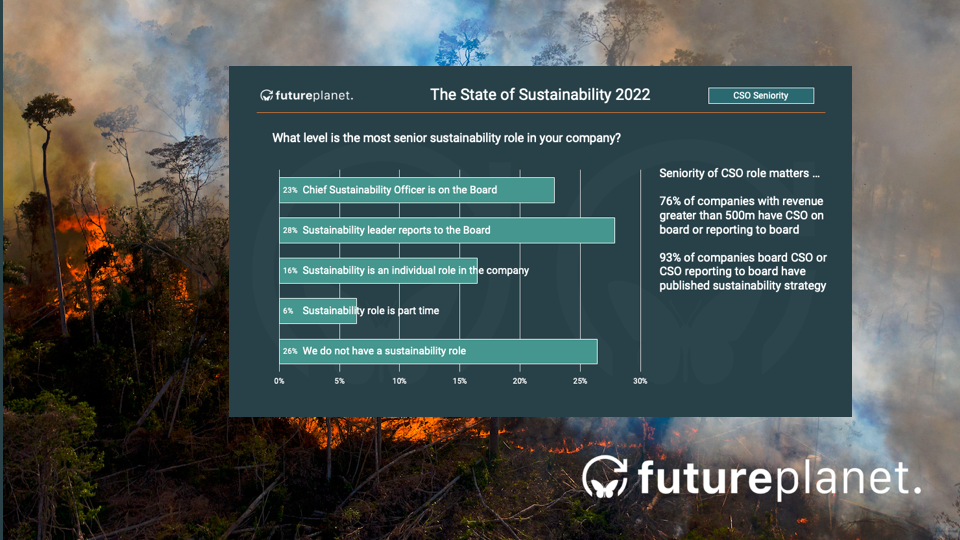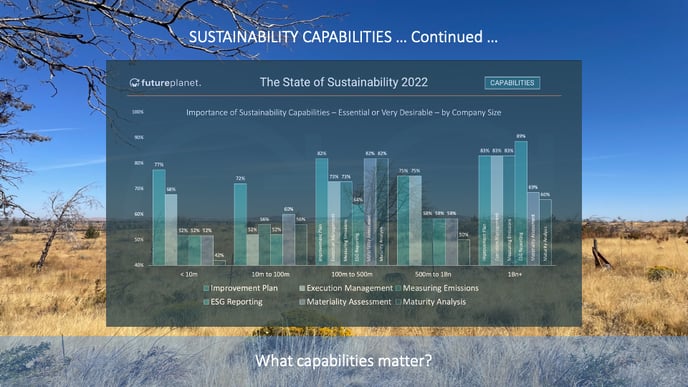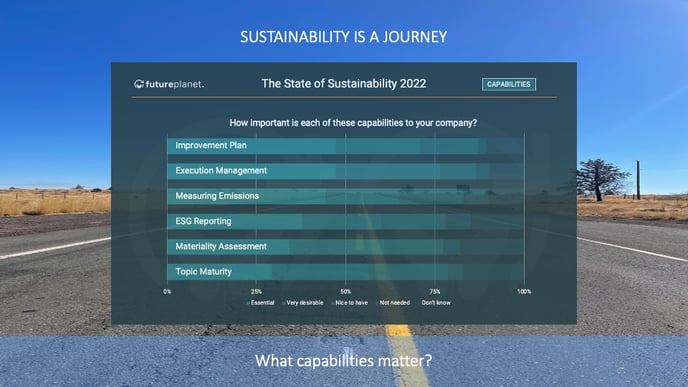
Sustainability Leadership Matters
[This was originally published as part of the Future Planet State of Sustainability Study. To request your copy of that report please email eva.]
In a week where the result of the presidential race in Brazil give us some hope that the Amazon will breather again … this excerpt from the Future Planet State of Sustainability Study is particularly apposite. Leadership matters.

Jack Welch, the famed Chairman and CEO of General Electric, said, “If the rate of change on the outside exceeds the rate of change on the inside, the end is near.” He was referring of course to the threat to a business of not responding quickly enough, or proactively, to external market pressures. He could have been making a case for involving a C-level sustainability leader, a Chief Sustainability Officer, as a peer-level executive at a company’s leadership table. There is no question today, but that for most companies’ external factors; their customers, markets, supply chain, and regulatory environment, the rate of change on the outside – because of sustainability pressures in general, and climate change in particular – is rapidly increasing. Winds are blowing, seas are rising, supply chains are breaking, regulators are regulating, old partnerships are breaking, and new partnerships are being formed, and with those changes, economic models are disrupted in tumultuous markets. Risks and opportunities abound. Let us state that again.
Risks and opportunities abound.
If we accept that this is even a small bit true, and that the change – and consequent risks and opportunities – are in any way related to sustainability and climate change, then it seems to make sense that the CSO should have a voice at the board table and is an influencer of corporate strategy.
Just over half (51%) of the companies either had a board-level CSO or “reporting-to-board” as the most senior sustainability position in the companies in our study. Where sustainability was acknowledged to be sufficiently important to have a board-level or reporting-to-board representative, nearly all companies (93%) had a published sustainability strategy.
The seniority of the sustainability role was correlated to company size. Companies with revenues greater than €500 million are twice as likely to have a CSO on the board than their smaller counterparts. Of the companies who do not have any sustainability role, only 15 percent (15%) come from the larger companies who represent 41 percent (41%) of the total study cohort.

Not all companies need a CSO, but that role it is more likely to be needed if, because of climate change, the external environment is indeed changing more quickly than the internal environment, as referenced above. A senior executive will then need to guide a strategic response and set the future direction of the business, aligning both business and sustainability strategies. That executive might also be required if external and internal stakeholder scrutiny re a company’s sustainability credentials increases and if changes to structure or governance frameworks are necessary.
The most important reason for the CSO to have a seat at the executive table is if the company identifies significant ESG / sustainability related risks or opportunities that will either advance or retard the business.
The CSO (using that moniker as a proxy for “senior sustainability role” – whether that is exclusively an internal role, or a hybrid internal/external resource) should be concerned with making sense of the external environment and bringing insight back into the company to help reconfigure strategy, and align teams through engagement, education and systems. The role and requisite skillset are complex and broad ranging, requiring aptitude in strategy, influencing, raising awareness, networking, and partnering at a senior level. Requiring deep knowledge of how the company works and the strategic impact of change prescribes a level of seniority that is currently only seen in a minority of companies. Less than one in four (23%) of the participants in our study has a board level sustainability representative.
For companies who do not yet have that senior role established, we would suggest they might consider creating a function or steering group to:
- Establish ESG governance structures to ensure the proper consideration of risks and opportunities
- Ensure a sustainability strategy is fully developed and aligned with current and impending legislative requirements
- Refine or establish a decision-making process so that all stakeholder interests are appropriately represented as strategic choices are made
- Engage with all governance bodies across the company; from the Board to Audit and Risk, to ESG sub-committees and sustainability taskforces
- Guide and shape the agenda on risk, audit, and compensation to accommodate future sustainability requirements and ambition
[This was originally published as part of the Future Planet State of Sustainability Study.
To request your copy of that report please email eva.]


